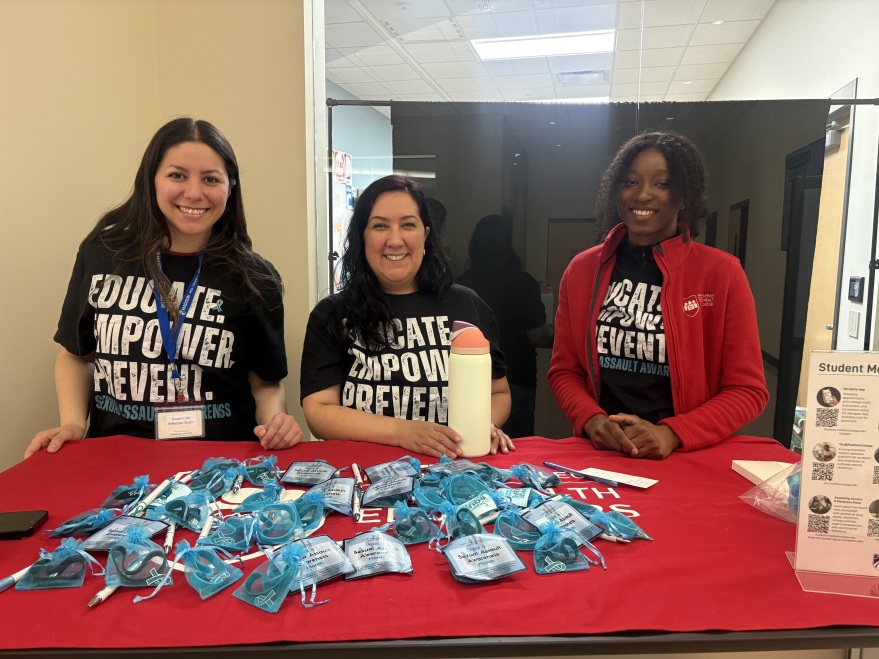Election-year hopes from a Muslim student
November 1, 2016
Ever since I was in middle school and began to wear the hijab, or headscarf, I felt as though it was my responsibility to behave a certain way so as not to disgrace the very faith I openly represent. Attending a predominantly white middle school, I dropped out after only half of a semester, and I still carry with me the memory of my science teacher putting me on the spot before my class presentation to give my classmates the opportunity to ask me questions about my religion, without a moment’s notice.
Already nervous about my presentation, I was suddenly on display to be the representation of a vast religion in front of 25 people, as if I, a 13-year-old, would be able to eloquently illustrate the complexities of Islam. I remember the first question was, “Do you wear that when you shower?” At my age, I had yet to know the ignorance and hatred that Muslim communities all across the United States had been suffering since the tragic events of 9/11 had reshaped and redefined Islam in the public’s eye.
Being Muslim in the United States is an increasingly terrifying reality. This past summer, after I finished the congregational prayer at the mosque, I was afraid to exit the mosque from the main doors in fear that a radical, anti-Muslim criminal was waiting outside to stab me. As paranoid as that may sound, we’ve seen it happen over and over again.
Just a few weeks ago, three white terrorists, or militia as mainstream news prefers to call them, were arrested for allegedly conspiring to bomb a mosque primarily used by Somali refugees in Kansas. Previously in July, a Muslim doctor was shot and stabbed as he left the mosque in Houston. Earlier in August, another anti-Muslim hate crime resulted in the fatal shooting of an Islamic leader and his assistant in New York.
These crimes and anti-Muslim hatred are even worse now in the 2016 election season than they were after the 9/11 attacks, according to data compiled by researchers for the New York Times. According to the same source, the Justice Department has “moved to draw public attention to the problem and marshal resources to combat it as part of a broader effort against religious discrimination.”
Furthermore, in North Carolina earlier this month, a seven-year-old boy was beaten on his school bus for being Muslim. His family has dealt with anti-immigration and anti-Muslim issues before according to CNN, and this was the final attack before the family decided to move back to Pakistan for fear of their own safety, leaving a country that prides itself on religious freedom.
As Zehra Naqvi, attorney, community organizer, and writer, wrote in her article for the Huffington Post, “Being Muslim in America means being identified by only one aspect of my identity. It means being told exactly what it means to be Muslim in America and having very little control over the narrative.”
Looking into the upcoming election this Nov. 8, I’m wondering what Muslim communities can do to change the narrative that both candidates have only further perpetuated, both intentionally and unintentionally.
From Trump’s outright plans of building walls, banning Muslims, or requiring Muslims to register in a database to Clinton’s plan on working with American Muslims who “can provide information to us that we might not get anywhere else,” the ideology that the average Muslim has anything to do with or any secret knowledge on extremist groups like ISIS is a dangerous threat to the effort that Muslim communities are making to disassociate our religion’s name with that of groups who try to hide their heinous acts beneath it.
I’ve spent the last several years denouncing ISIS and all that they claim to be, but who is listening? Muslim leaders and protesters around the world have denounced ISIS, and yet we’re still cast into the same light as them. We need a President who knows the difference between the two, and who actively works with Muslim American communities to redefine Islam in an accurate and wholesome way. At least that’s what I’m praying for.






























